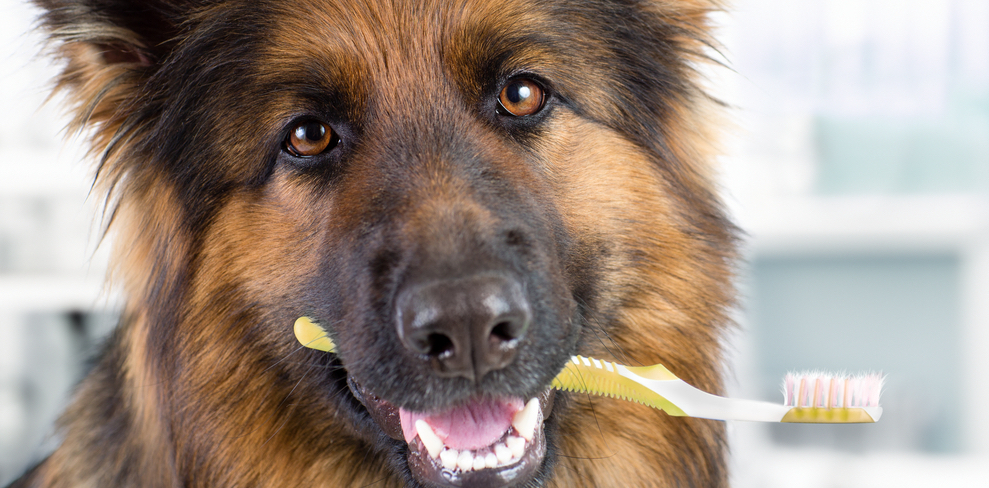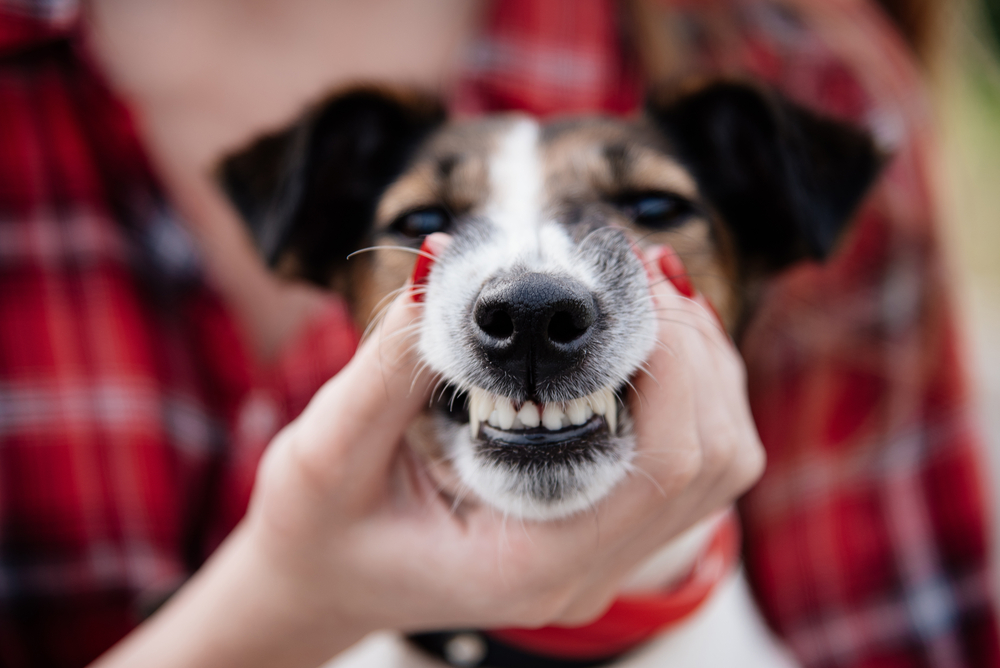
Taking Care of Your Canine's Chompers: Common Dental Issues in Dogs
Our furry friends bring endless joy and companionship into our lives, but when it comes to their dental health, they often need a little extra help from their human companions. Just like humans, dogs can suffer from a range of dental issues that, if left untreated, can lead to discomfort, pain, and even more severe health problems. In honor of Dental Health Month, let’s delve into some of the most common dental issues found in dogs, their symptoms, and most importantly, how to prevent them.
Common Dental Issues in Dogs
1. Gingivitis
Gingivitis is inflammation of the gums and is one of the most prevalent dental issues in dogs. It’s typically caused by a buildup of plaque and tartar along the gumline, leading to red, swollen gums.
2. Periodontal Disease
If left untreated, gingivitis can progress to periodontal disease, which affects the tissues and structures supporting the teeth. This can result in tooth loss, pain, and infection.
3. Dental Calculus (Tartar)
Dental calculus, or tartar, forms when plaque hardens on the teeth. Tartar not only contributes to gum disease but can also harbor bacteria that can lead to infections.
4. Tooth Fractures
Dogs can fracture their teeth due to chewing on hard objects, trauma, or dental disease. Fractured teeth can be painful and may require extraction.
5. Malocclusion
Malocclusion refers to misalignment of the teeth, which can lead to problems with chewing, discomfort, and an increased risk of dental disease.
Symptoms of Dental Issues in Dogs
• Bad breath (halitosis)
• Red, swollen gums
• Bleeding gums
• Difficulty eating or chewing
• Pawing at the mouth
• Excessive drooling
• Loose or missing teeth
• Discolored teeth
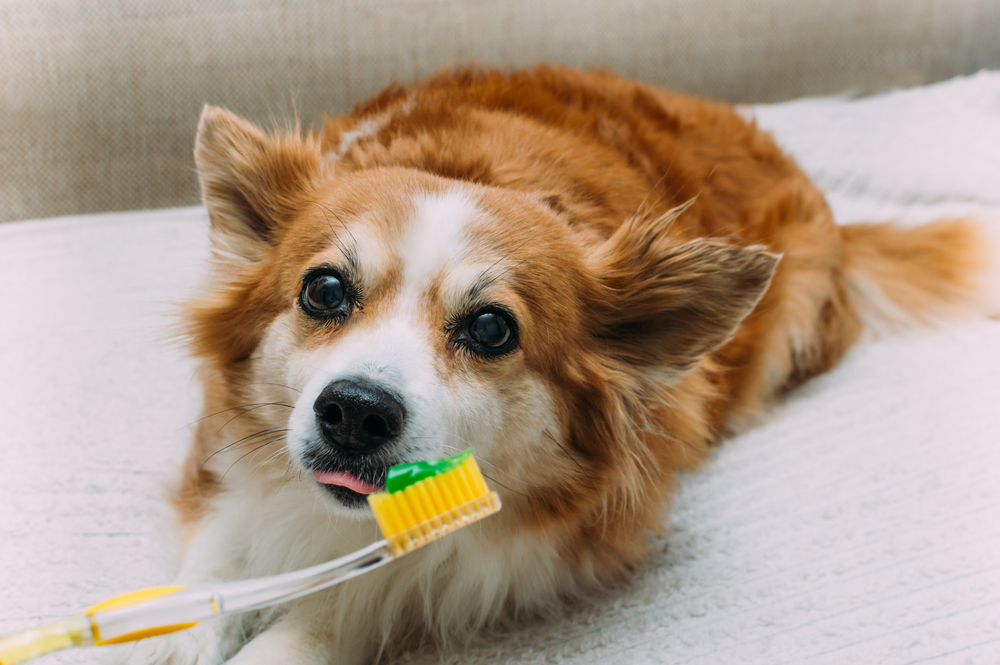
Preventing Dental Issues in Dogs
1. Regular Dental Care: Brush your dog’s teeth regularly with a dog-specific toothbrush and toothpaste. Start slowly and make it a positive experience for your pet.
2. Dental Chews and Toys: Offer dental chews and toys designed to promote dental health by reducing plaque and tartar buildup.
3. Healthy Diet: Feed your dog a balanced diet that supports dental health. Avoid feeding too many sugary treats, as they can contribute to plaque formation.
4. Regular Veterinary Checkups: Schedule regular dental checkups with your veterinarian. They can perform professional cleanings and identify any dental issues early on.
5. Provide Fresh Water: Make sure your dog has access to clean, fresh water at all times. Proper hydration is essential for maintaining oral health.
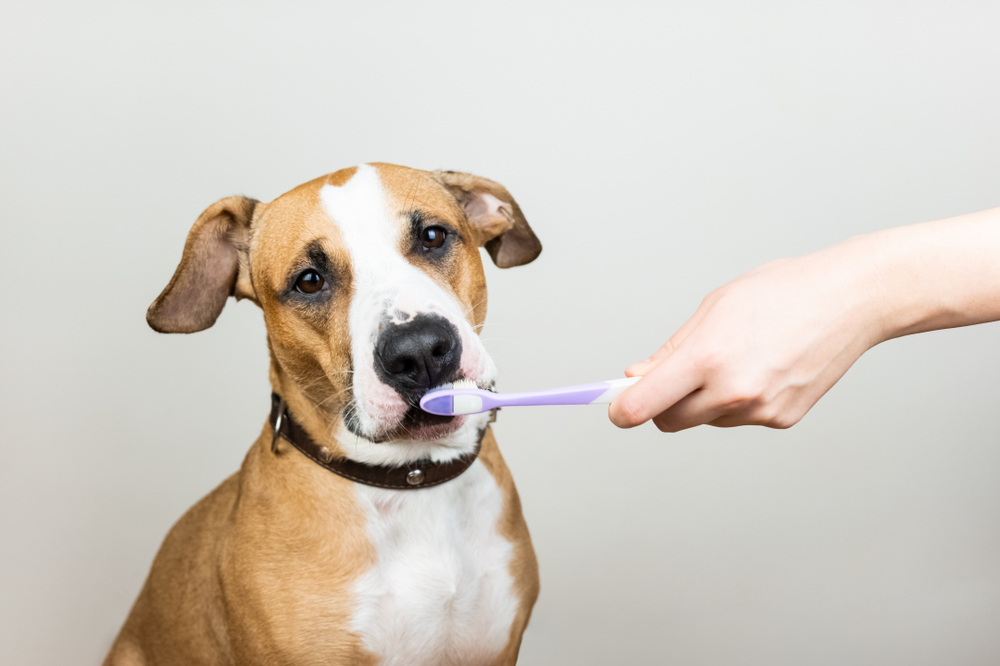
Take Charge of Your Dog's Dental Health: Schedule An Appointment at Olive Branch Pet Hospital Today
As responsible pet owners in Pensacola, FL, it’s crucial to prioritize your dog’s dental health. By being proactive and implementing preventive measures, you can help keep your furry friend’s chompers in tip-top shape. Remember, regular dental checkups at Olive Branch Pet Hospital can catch any issues early and ensure your dog’s oral health is well-maintained. So don’t wait—schedule a dental appointment for your pet today and give them the gift of a healthy smile!



